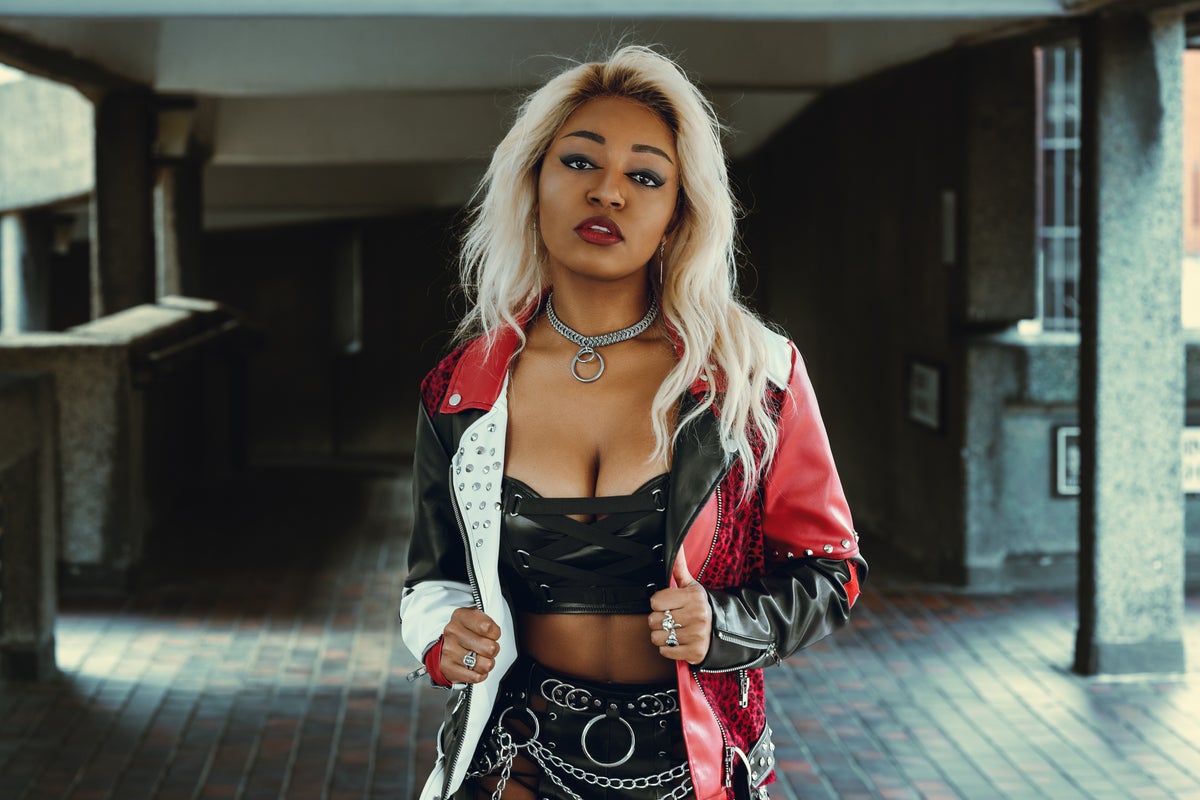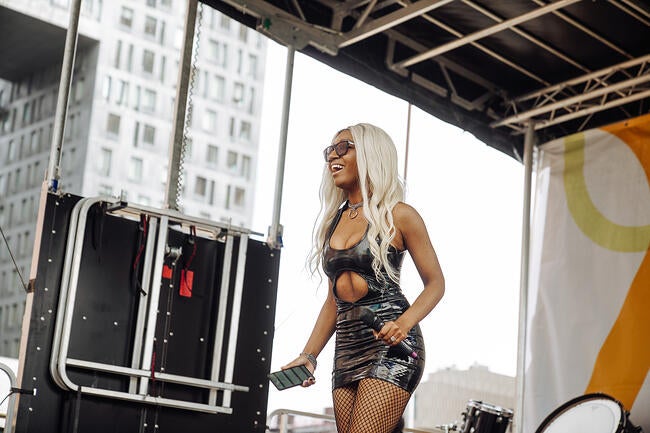
This is what asexual looks like" is the tagline that activist and model Yasmin Benoit has become known for. She's fast becoming the face of asexuality, which she says is often forgotten about.
For years, people told her she didn't look like she was asexual. A strange remark that led her to start the social media hashtag, #ThisIsWhatAsexualLooksLike, highlighting a lack of understanding about those who experience little to no sexual attraction towards anyone, regardless of gender, as well as aromantic people, who experience little to no romantic connection.
The hashtag's speedy popularity “helped to diversify the conversation," she says. "I am what asexual looks like, too. It looks like anybody. It's not just one example".
We're speaking just after her visit to Washington DC for a World Pride event, where she spoke at the Human Rights Conference about marginalised identities. Benoit paves the way for challenging stigma on asexuality – she's a multi award-winning campaigner, and was recently the first asexual person to win a British LGBT Award. She first gained a platform through modelling, turning to activism in 2017, but really pursued it after finishing her masters in 2019 when she had "more time to think". She felt "the algorithm kept showing me asexuality related things, and I just realised the conversation hadn't changed, developed or expanded at all since I was in secondary school," and there were still deep misconceptions. "People haven't really understood how asexuality fits into the conversation of sexual liberation or the queer movement," she explains.
"People think if you're asexual you shouldn't wear nice clothes, wear make-up or do your hair. And I'm like, what am I supposed to wear, a potato sack, or something? I've had GB news do a whole segment on my appearance and how I don't look asexual enough. They said my lips were too pouty. I think that that in particular is rooted in sexism and racism, for sure," she adds.
For Benoit, she didn't think the idea of dressing for herself (and not a male gaze, or for anodyne else) was a "revolutionary idea in this day and age", until she started getting all these "crazy reactions" to her appearance.
The denial to accept Benoit as asexual meant she felt she "wasn't really able to take part in anything for a while because it just didn't seem like that was my place, which is ironic now, because now everyone knows me from being asexual". It took around six or seven years for people to finally start accepting her, which she pinpoints to happening after an interview with Metro.

Though there's still a long way to go, and of course Benoit is at the helm. She says one of the worst issues she's faced was hearing the likening of asexual people to incels (involuntarily celibate people) on American comedian Trevor Noah's podcast, What Now?. “It was very concerning that no one registered that it's really a different thing. It shows the absolute gap in knowledge. Incels experience sexual attraction to the point where it's frustrating to them that they're not getting it. It's literally the fundamental opposite to asexual," she explains.
With such worrying misconceptions, Benoit's work is more important than ever. A landmark moment of her career, so far, is her work as a research fellow at King’s College London’s Policy Institute, where she worked on an important study focusing on public perception of asexuality. The research, published earlier this year, found that one in four people believe asexuality is a mental health problem and can be cured by therapy.
Benoit has been petitioning to have asexual people included in the conversion therapy ban too. There's still no definitive date on when the long-awaited ban will happen. “First, it was going to be in the first quarter of this year,” she says. “Then it was definitely June, but now it's June. So now I'm thinking, is it late this year? Is it next year? Who knows at this point”.
Aside from her big social media presence and research work, in 2021 Benoit also co-created the annual International Asexuality Day (IAD), celebrated on 6 April, which raises awareness and advocates for the asexual community. It was also designed to broaden the asexual conversation further than just the western world, where it had seemed to be dominated. “I wanted to coordinate activists in all different parts of the world, so we could all have a day that could leverage, and shine the light on different types of experiences. Benoit has been to countries such as the Czech Republic, Serbia and Lithuania to do this too.
Though for some corners of the internet, it's become something else to be annoyed about. “I had no idea that people would be so angry about asexuality,” which is known as acephobia (the fear, dislike, or prejudice directed towards asexual people). “It's kind of ironic, because out of all of the provocative things you can do, not experiencing sexual attraction should it really be one of them?” Earlier this year, one of those people was author JK Rowling who re-posted an IAD celebration post with a belittling comment about people “who [want] complete strangers to know they don’t fancy a shag.”
As well as acephobia, Benoit has noticed a wider problem that affects the whole of the LGBT+ community too. She thinks 2019 was the last good year for big brands working with LGBT+ people. “There's definitely been a shift. When you look at lots of big brands' last big Pride campaign, it's always 2019”.
She thinks 2025 is the worst year yet for work and says it's tied to what's happening in America with Trump's rollback of DEI (diversity, equity and inclusion) – the most powerful person to be annoyed about inclusivity. “Everyone I've spoken to is saying the same thing, 'the brands have pulled out', 'Pride's losing sponsors'. As soon as Donald Trump said, 'screw DEI', that was it,” she says.







